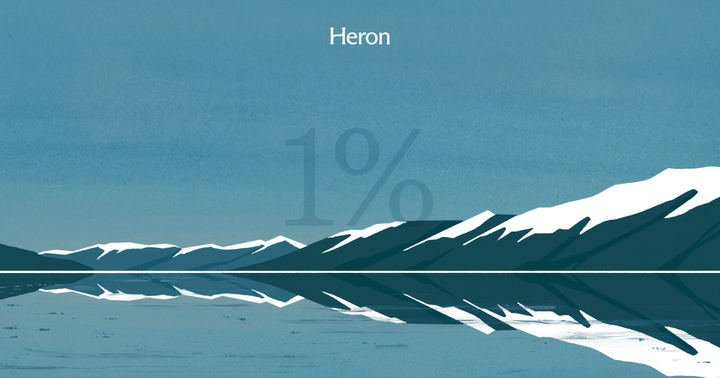What Could Spoil Private Credit's Party?
Some are worried about corporate default rates creeping up this year, and the impact that might have on the credit markets. Here's why private credit may experience resiliency in the face of a spike in default rates.

“He who dares not grasp the thorn, should never crave the rose.”
- Ann Bronte
It’s human nature to worry about the thorns amidst the rose bushes. Put another way–when things are going great, we tend to wonder what could come along and spoil the party.
Things are certainly going great for private credit. The sector is enjoying a confluence of tailwinds: regulatory changes driving banks to pull back on lending (creating more demand for private credit), a climate of rising interest rates (private credit tends to fare better when interest rates increase),[1] and digital innovation that is expanding access to individual investors.
Given these tailwinds, it should come as no surprise that the industry is predicted to grow steadily over the next several years. Preqin projects that the private credit market will expand from $1.6 trillion today to $2.8 trillion in 2028, as borrowers continue to migrate towards alternative lending sources.[2]
For private credit investors, the market is looking rosier than ever. There’s just that one thorny issue that keeps popping up: default risk.
Don’t Fault a Default
Default risk is the risk that a borrower will be unable to meet their debt obligations. For private credit investors, this implies the loss of some (or all) of their invested capital for that particular deal, which could lead to a lower-than-expected overall annual return on the investment.
Some worry that corporate default rates might start to rise–the thinking goes a little something like this: We’re in a climate of higher-for-longer interest rates, which means debt is more expensive than it used to be. Loans taken out years ago are maturing (coming due), meaning companies will either have to pay back the principal (loan amount) or refinance that loan. Companies that can’t afford to pay back the principal will have to refinance at higher rates, which means their monthly interest payments will increase. This could impact their operations, causing financial stress on the company, and lead to a wave of corporate defaults.
Many are predicting that corporate default rates will increase over the coming year. We don’t have a crystal ball, so we’re not going to opine on that prediction one way or another. What we can say is, even if corporate default rates do rise this year, there are reasons to think this won’t impact the private credit industry:
1. Private Equity to the Rescue: The global private equity (PE) industry is currently sitting on $2.67 trillion in dry powder (money sitting on the sidelines, just waiting to be deployed).[3] Typically, when PE-backed companies face financial stressors, they rely on their PE sponsors to support them with capital infusions. In other words, PE firms can rescue their portfolio companies should they face the risk of a default. And given all of that dry powder, we believe that prospect is likely.
One other important stat: The percentage of U.S. private equity deals using private credit increased from 41% in 2021 to 67% by the first half of 2023.[4] This shows that the two sectors are intertwined. So if PE firms do support their portfolio companies with additional capital infusions, this might in turn lower the default rate for companies that have accepted private credit loans (since many PE-backed companies have accepted such loans). Thus, even if the broader U.S. default rate ticks higher, private credit borrowers may not be as heavily impacted.
2. Trust but Verify: Private credit lenders typically maintain excellent visibility over asset performance, given the flexible nature of their loan agreements. Private credit lenders tend to lend into niche industries which many lenders don’t understand, and so they seek to maintain added visibility into their borrowers (beyond even what many banks require).
For example, we at Heron Finance maintain comprehensive covenant packages both at the corporate and portfolio level. We also frequently monitor our borrowers and syndicate partners by requiring monthly reporting to ensure that the assets our loans are secured against are performing as expected. We also regularly speak with the management teams of our borrowers in order to identify and resolve any performance issues. In some cases, we or our syndicate partners maintain board-level involvement (in the form of observer rights or a seat on the board), which provides an extra layer of visibility into the borrower.
3. Alignment of Incentives: Unlike large banks which maintain a vast portfolio of deals, in order for private credit lenders to deliver healthy returns to their investors, they typically must avoid absorbing large losses on individual deals. Private credit lenders therefore impose stricter covenant structures than banks (usually), which leads to lower loss rates for private credit than traditional banking.[5]
While some private credit lenders will certainly make bad loans, we believe that given this alignment of incentives, the probability of a structural failure within the private credit sector is not as high as it is for traditional banking (regional banking almost collapsed in 2023, during the Silicon Valley Bank and First Republic meltdowns).
A Healthy Dose of Diversification
The best way to mitigate the risk of uncertainty is to diversify one’s portfolio. That holds true for an investment portfolio (which can be diversified with stocks, bonds and alternative assets like real estate and private credit). It also holds true for the individual asset classes within an investment portfolio, such as private credit itself.
We at Heron Finance are diversifying our private credit investments across industry (finance, hospitality, education, etc.), geography (both U.S. and international), maturity date (we have loans maturing in eight months, and others maturing in over a year) as well as seniority level (senior loans and mezzanine loans–all of which are secured).
Our expert credit team (over $4 billion of private credit origination and structuring experience) always underwrites to recession-level default rates, meaning we model the financial performance of our prospective borrowers should a recession strike, so we understand the worst-case scenario. And we maintain stringent approval standards (four out of five members of our investment committee must approve a given deal for us to issue the loan).
All of this is to say that default risk remains a very real risk to our economy, as well as to the private credit market in particular. While this risk may never materialize (if we achieve a ‘soft landing’ and avoid a recession altogether), there are reasons to believe that the private credit sector won’t be as impacted as other asset classes. Of course, we at Heron Finance aren’t taking any chances–we maintain stringent underwriting standards to ensure that only the most creditworthy deals reach our investors’ portfolios.
Source: Blackstone ↩︎
Source: Commonfund ↩︎




